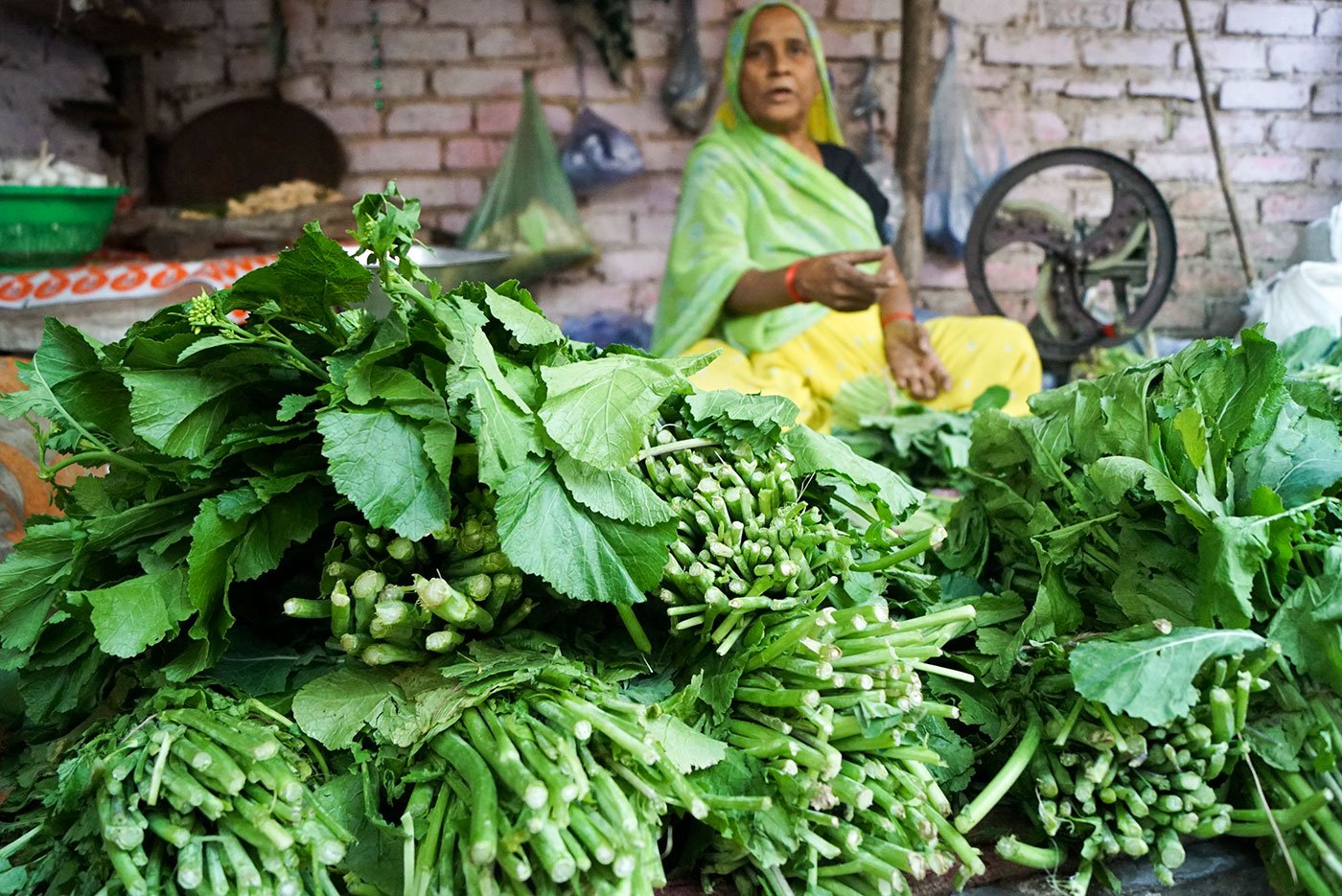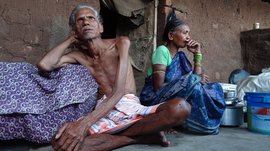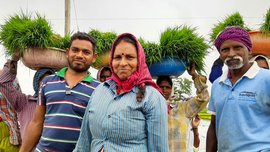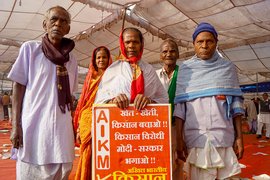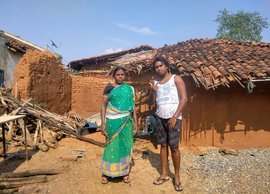“People used to say ‘Jai Jawan, Jai Kisan’, and the government might be taking care of the jawans but the kisan are a neglected lot,” says Pappu Kumar Rathore, 36, a disabled vendor at the sabzi mandi (vegetable market) in the Kishanganj area of north Delhi. “Farmers are not getting back what they are investing in agriculture. It’s no more a profitable occupation, that is why many are leaving agriculture.”
“There is no certainty in farming due to fluctuating rates,” he adds. “We meet farmers in the mandi , and I know many farmers who are now working as labourers. The government should address their issues because they are our anna daata [providers of food].”
Also at the mandi , Radheshyam Rathore, a vegetable vendor from Karauli in Rajasthan, says, “Ours was a farm family. If farming had been good, my father would not have come to Delhi. Now we three brothers are here in this vegetables business.”
Next to him, Omprakash Raiswal, 57, from a Dalit community, an onion and potato vendor, says, “We were also farmers but our ancestral land was reduced to a small patch after it was divided among my father’s brothers. So some 20 years ago my father migrated from Kolana village [in Dausa district of Rajasthan] to Delhi with our family to earn a livelihood. That is why we are here. Now farmers don’t get the price, the middlemen take the profit. Farmers are struggling to survive."

Top left: Pappu Kumar Rathore; Top right: Radheshyam Rathore; Bottom left: Omprakash Raiswal
